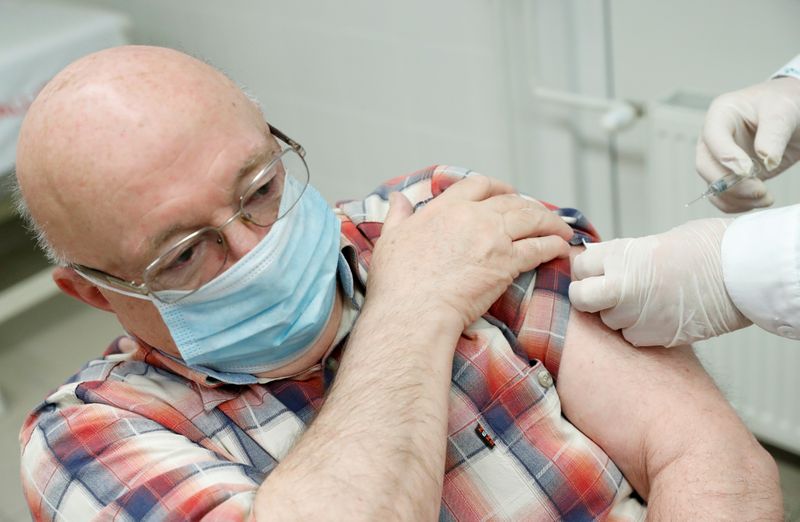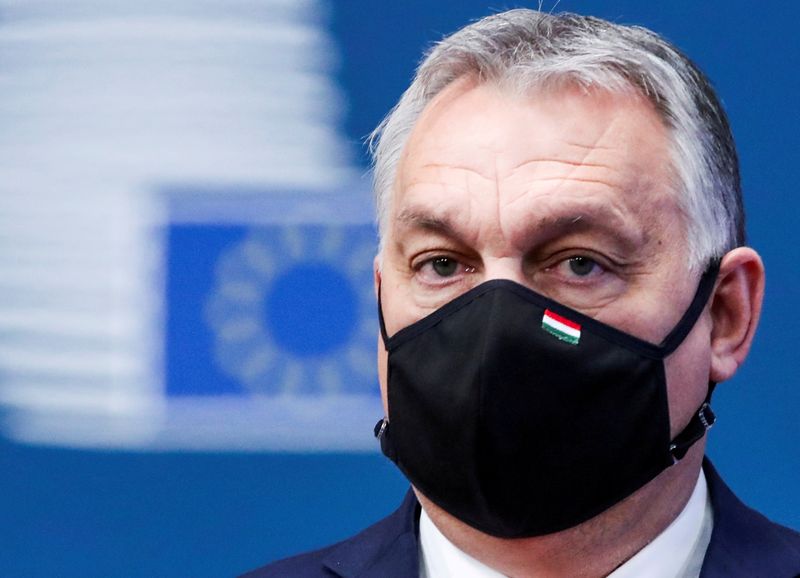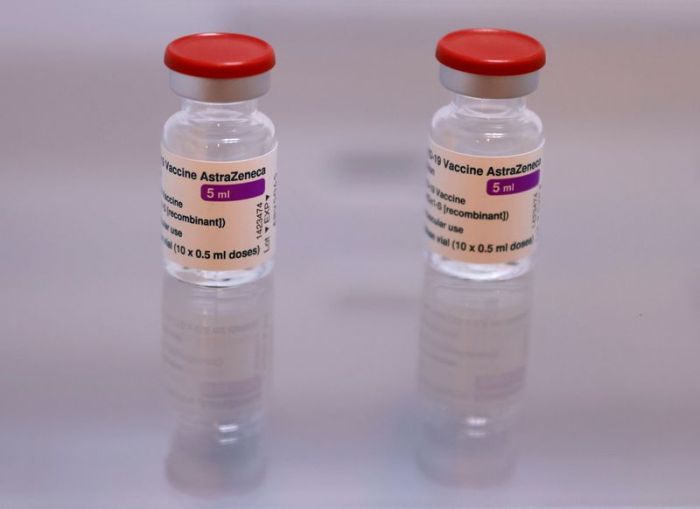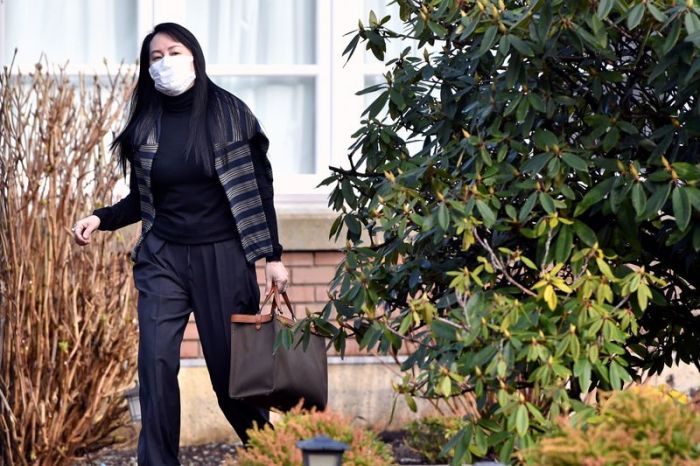BUDAPEST (Reuters) – Hungary announced new COVID-19 lockdown measures on Thursday to try to curb a “very strong” third wave of the pandemic, closing most shops and shifting to remote learning in primary schools.
With new cases hitting a three-month daily high of 6,278 on Thursday, mainly because of the spreading coronavirus variant first found in Britain, Prime Minister Viktor Orban faces a growing political challenge.
Orban, who faces an election battle early next year, had kept shops and industries open to try to limit the economic effects of the pandemic, which caused a 5% recession last year.
“The third wave (of the pandemic) is strong, very strong and worse than the second wave had been,” Gergely Gulyas, Orban’s chief of staff, told reporters.
Gulyas said Hungary’s vaccination campaign had gathered speed but was not fast enough to stop the spread of new infections.
Primary schools and nurseries will shut until April 7, and all shops except food stores, pharmacies and petrol stations will close from March 8 until March 22. Outdoor sport will be allowed if social distancing rules are followed.
Gulyas said employers should allow home working wherever possible, and that wearing a mask would be mandatory in all public places.
“We hope we are in the last phase of the pandemic and we will reach vaccination levels within a few weeks or months that allow a reopening (of the economy), which will start from March 22 in a gradual manner,” he said.
Since mid-November, Hungary has had a night-time curfew, hotels and restaurants have been closed, and remote learning has been in place in all secondary schools.
Last week it became the first European Union country to start inoculating people with China’s Sinopharm vaccine after rolling out Russia’s Sputnik V vaccine although neither has been granted approval for emergency use by the bloc.
The Russian and Chinese shots are being administered along with the Pfizer-BioNTech, vaccine and shots developed by U.S. company Moderna and AstraZeneca, all of which have received the EU green light.
As of Thursday, over 785,000 people in Hungary had received at least one dose of a COVID-19 vaccine. The virus has infected 446,178 people in the country of 10 million and killed 15,476.
(Reporting by Krisztina Than and Anita Komuves; editing by John Stonestreet, Shri Navaratnam and Timothy Heritage)

























